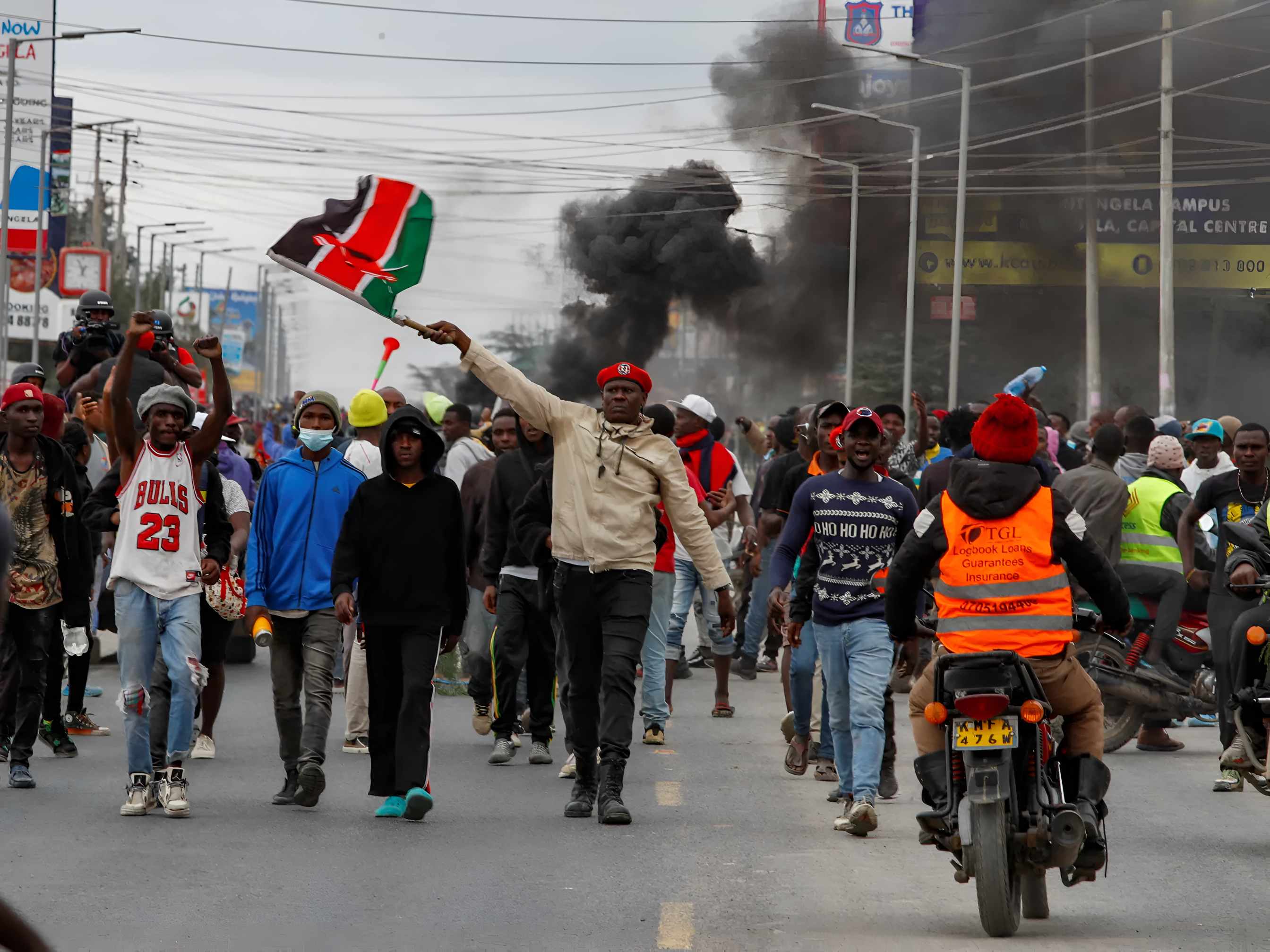What began as online outrage over a tax bill turned into one of the most powerful protest movements in Kenya’s history—led by a generation that rejected fear, tribalism, and political patronage.
One year later, the memory of that uprising continues to shape the national conversation.
June 2024 marked the moment Gen Z rose with clarity and courage, determined to be heard. What started as a digital resistance against the Finance Bill 2024 quickly became a nationwide call for justice, accountability, and inclusion.
On June 25, 2024, thousands flooded the streets in one of the largest youth-led protests in modern Kenya.
The protests were unlike any seen before—leaderless, spontaneous, and driven by a generation that declared itself “Partyless, Leaderless, Tribeless.” They rejected political affiliations, instead demanding reforms that put people first.
The Finance Bill 2024, tabled on May 9, proposed a 16 percent VAT on bread, sanitary pads, and diapers. It introduced a 2.5 percent annual tax on vehicle value, permanently enforced a 1.5 percent housing levy on gross salaries, and added a 20 percent withholding tax on digital content creators.
Public outrage erupted across digital platforms. TikTok, X, and Instagram exploded with hashtags like #RejectFinanceBill2024, mobilizing thousands beyond the screens.
On June 18, Kenyans took to the streets. In Nairobi, crowds were joined by celebrities and public figures.
Artists like Nyashinski, Nadia Mukami, Blinky Bill, Flaqo, Charisma, Dan Aceda, Abel Mutua, Andrew Kibe, Oga Obinna, and Azziad Nasenya added their voices. But it was youth activists like Shakira Wafula, Morara Kebaso, Kasmuel McOure, Hanifa Adan, and Anini Barasa who led from the front—organizing, speaking out, and confronting riot police.
June 25, 2024, was the peak of the movement. Protesters breached Parliament during the bill’s third reading. The moment was captured globally: flags waving, tear gas thick in the air, and chants echoing through the streets under the banner #OccupyParliament.
The day ended in tragedy. Lives were lost—Rex Kanyike Masai, Ericsson Kyalo Mutysia, Shaquille Ramsfield Obienge, Abdi Kadir, Evans Kiratu, Eric Shieni, David Chege, Beasley Kamau, Ibrahim Kamau, Kennedy Onyango, Emmanuel Tata, Benson Mbithi, Michael Kihuga, Austin Makhoka, Caroline Shiramba, and Eric Kayoni. Dozens more were injured.
Public outrage was overwhelming. On June 26, President William Ruto addressed the nation.
He announced he would not sign the Finance Bill and withdrew it, calling for dialogue with the youth. It was seen as a historic victory.
But hope soon turned to anger as reports emerged of forced disappearances, night-time abductions, and continued police brutality. The movement evolved. Boniface Mwangi launched a push for police reforms.
Hanifa Adan raised over Sh31 million through a viral M-Changa campaign to support injured protesters and bereaved families.
Then came political aftershocks. On July 11, President Ruto dissolved almost his entire Cabinet, retaining only Deputy President Rigathi Gachagua and Prime Cabinet Secretary Musalia Mudavadi.
When a new Cabinet was unveiled, it included unexpected opposition names—Opiyo Wandayi at Energy, Hassan Joho at Mining, and John Mbadi at Treasury. Some praised the inclusivity. Others called it co-optation.
Kasmuel McOure, a teacher turned protest symbol, announced on November 10 that he had joined the Orange Democratic Movement (ODM). His move sparked debate. Some viewed it as necessary political engagement, others saw it as a betrayal of the movement’s independent identity.
Then came another shock. On October 17, Deputy President Gachagua was impeached by Parliament and removed from office after the Senate upheld five charges, including corruption. President Ruto named Kithure Kindiki as his replacement—marking the first time a sitting Deputy President was ousted in Kenya’s history.
Two Junes now stand as milestones. June 2024 saw a Parliament breached. June 2025 was marked by mourning—this time over the death of Albert Ojwang’, who died in police custody. These moments have become symbols of struggle, resilience, and an unyielding demand for justice.
The youth movement may have started with a bill—but it became a mirror for a nation confronting its truths.

